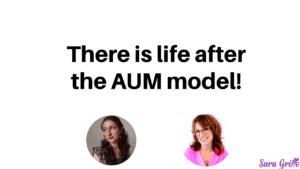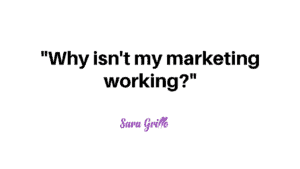Podcast: Play in new window | Download
The math behind Universal Life Insurance Interest Rates is a twisted web and most consumers are deceived. Know how the math works so you can see the potential risks that may exist with your policy.
But before we get into it…
Look, there are alot of schmucks out there hawking crap products disguised as financial advice.
Don’t be fooled!
Please subscribe to my newsletter to receive updates that raise awareness of consumer financial issues. It will teach you how to avoid shenanigans, crap products, and other scummy practices that are unfortunately common in financial advice.
I wrote a bunch of consumer advocacy blogs here to protect people from all the BS.
Blunt, unfiltered truth about Universal Life
Get an in-force illustration when you buy UL
Hidden costs in an insurance illustration – how to crack the code
The math around Universal Life Insurance interest rates is not that straightforward
According to our podcast guest Elan Moas, the investment assumption of the three primary cash value universal life insurance policies (UL, VUL, IUL) displays a hypothetical illustration of what MIGHT occur with the policy. It is based on zero ($0.00) cash value guarantees.
Here’s the danger of relying on illustrations based upon unrealistic Universal Life Insurance interest rate assumptions.
- Universal life (UL=money market investment) policies from the late 1980s to the early 2000s were illustrated using 8%+ CD-like rates of return forever. Money market rates crashed to zero (0%) in 2022 due to Covid-19.
- Variable universal life (VUL=mutual funds) were/are illustrated using an 8%-12% CD-like ROR eternally. That is a mathematical impossibility.
- Indexed universal life (IUL=something like the SP500 index) but WITHOUT dividends and their reinvestment. There is no securities license required to sell it.
The interest rate assumptions for Indexed Universal Life require extra explanation. Actuarial Guideline 49 of 2015, via the National Association of Insurance Commissioners (NAIC) sought to cap, or limit the highly unlikely, aggressive illustrations used in the sales software prior to 2015. This correction was updated in 2020 with AG 49A and again in May 2023 with AG49B. This means the policyholder was likely shown an illustrated rate of return regulators have now deemed to be wrong and/or incorrect.
All three policies likely heavily underperformed the original illustration. Lower future cash value means your internal costs are higher and the policy is more likely to “lapse” or cease to exist while you the policyholder is still alive. This defeats the notion that these are permanent policies.
What to do if you own a policy?
Order yourself an “in force illustration” which is the current policy projection and one that your insurer is not required to send you, unless you request it. Most policyholders have no idea this report exists.
If it still looks ok, congrats, you are one of the lucky ones. But this might be less than 5% of policyholders. Being on the wrong side of compound interest rates in universal life policies is a problem for the policyholder.
- On UL and IUL use current rates, VUL use a 5% & 6% rate of return.
- Request an internal cost report that shows all the internal costs eroding your cash value.
- Request an additional report paying only until age 70, since in retirement you are on a fixed budget and do not want outgoing payments.
Are you disturbed yet?
Let me leave you with this:
#1
If you have any questions, send me a note. I am sick of consumers getting a raw deal and would be happy to hear your questions.
#2
I have a newsletter entirely devoted to advocacy for the consumer. The goal is to educate people so they can steer clear of the traps the financial services industry sets for them. Please subscribe to my newsletter to receive these updates so you can avoid being taken advantage of by shenanigans.
These are topics I’ve written about in the past:
Blunt, unfiltered truth about Indexed Universal Life
How to CRACK the secret costs in an insurance illustration
Top advisor lists are bullcrap
#3
Please subscribe to my newsletter to receive updates that raise awareness of consumer financial issues. It will teach you how to avoid shenanigans, crap products, and other scummy practices that are unfortunately common in financial advice.
Be safe!
-Sara G
Elan Moas
Elan Moas, the owner of Moas Consulting, a firm specializing in life insurance strategies, is a 4X SEC whistleblower and author of the book, “Lapsed, The Universal Life Insurance Whistleblower.” This is an expose of the entire universal life insurance industry and his decade-long research project to save millions of consumers and their lapsing policies makes him one of our country’s most important and ethical whistleblowers.
Disclosures
Grillo Investment Management, LLC does not guarantee any specific level of performance, the success of any strategy that Grillo Investment Management, LLC may use or mention in any of its content, or the success of any program it may mention in any of its content. Grillo Investment Management, LLC will strive to maintain current information however it may become out of date. Grillo Investment Management, LLC is under no obligation to advise users of subsequent changes to statements or information contained herein. This information is general in nature; for specific advice applicable to your current situation please contact a consultant or advisor. I want to be clear that nothing in this podcast or blog can be interpreted as an investment recommendation of any type, or an endorsement of any particular person or their services. The opinions expressed herein do not necessarily represent the views of Sara Grillo or Grillo Investment Management, LLC. Also, nothing in this podcast or blog can be interpreted as legal or compliance advice. For advise on such matters, contact a legal or compliance advisor. Any similarities to persons deceased or alive are entirely coincidental.





